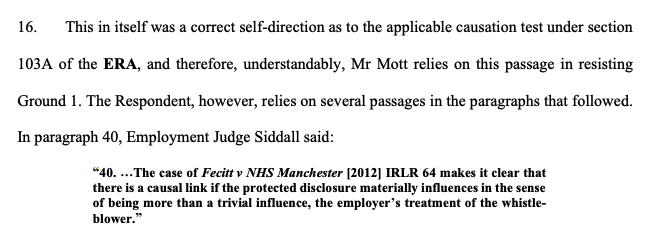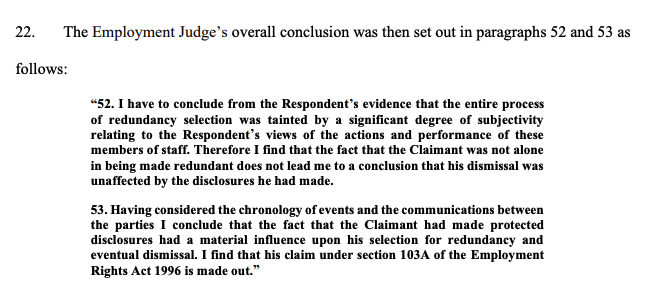
1/ Secure Care UK Ltd v Mott: EAT allows appeal against an ET finding of s.103A unfair dismissal when the ET applied the wrong test & failed to single out those claimed disclosures it found qualified from those which it found didn't. #ukemplaw
bailii.org/uk/cases/UKEAT…
bailii.org/uk/cases/UKEAT…
2/ A logistics manager for NHS transport services for those with mental health issues was made redundant. He asserted that decision resulted from making 9 protected disclosures. The ET found only 3 of the 9 in fact qualified as protected disclosures
3/ The ET directed itself to the Fecitt test of material influence, accepted there was a genuine redundancy situation but found the making of the disclosures materially influenced M's selection for redundancy. 





4/ Unsurprisingly, the EAT found the ET applied the wrong test, given that Fecitt's material influence test applies to s.47B detriments & not to the sole or principal reason requirement of s.103A. 



5/ Moreover, in reaching her conclusion on s.103A the EJ hadn't distinguished between the 3 protected disclosures & the 6 she found weren't protected. She ought, of course, to have limited herself to whether the 3 were the sole or principal reason for M's dismissal. 

• • •
Missing some Tweet in this thread? You can try to
force a refresh











